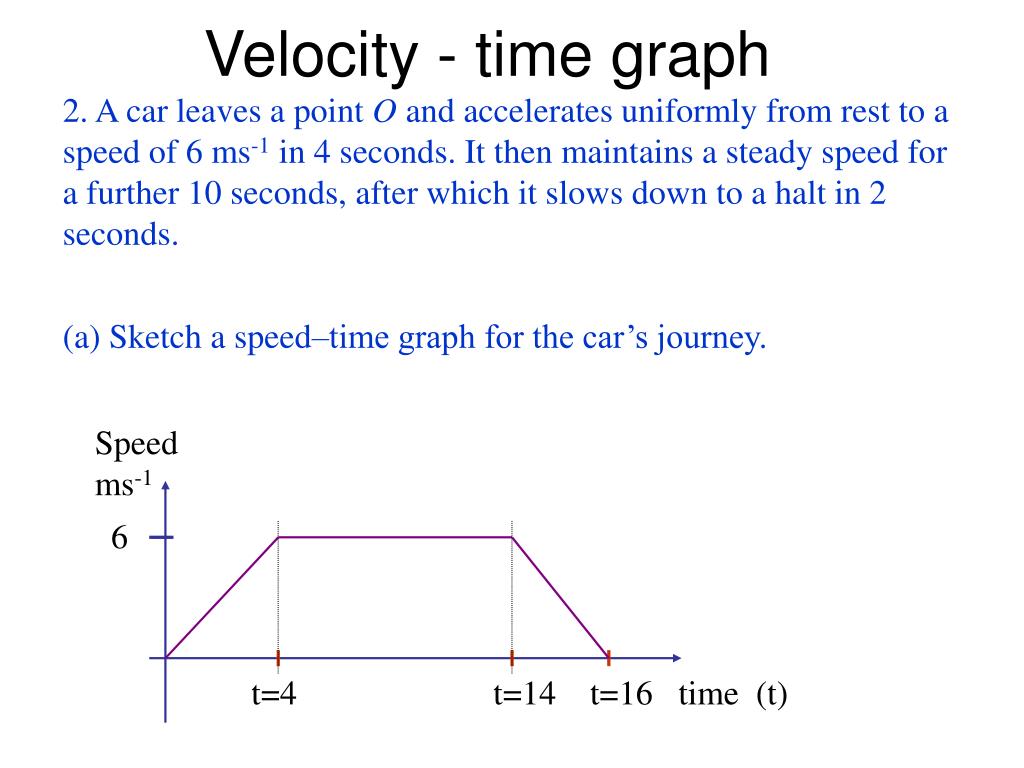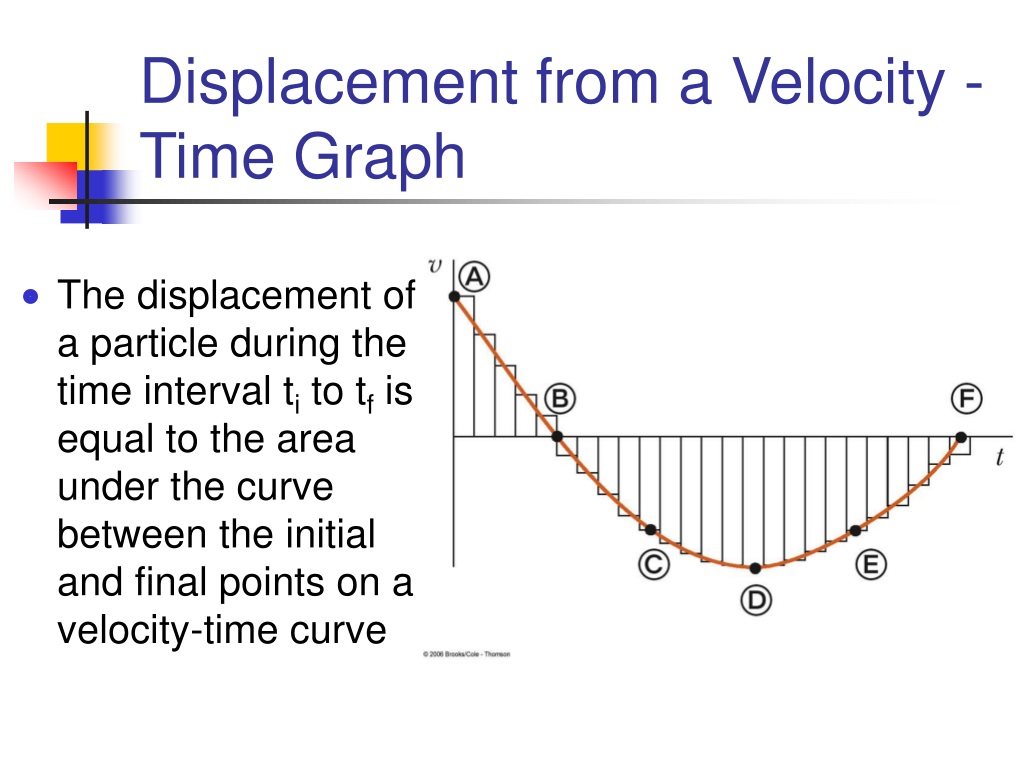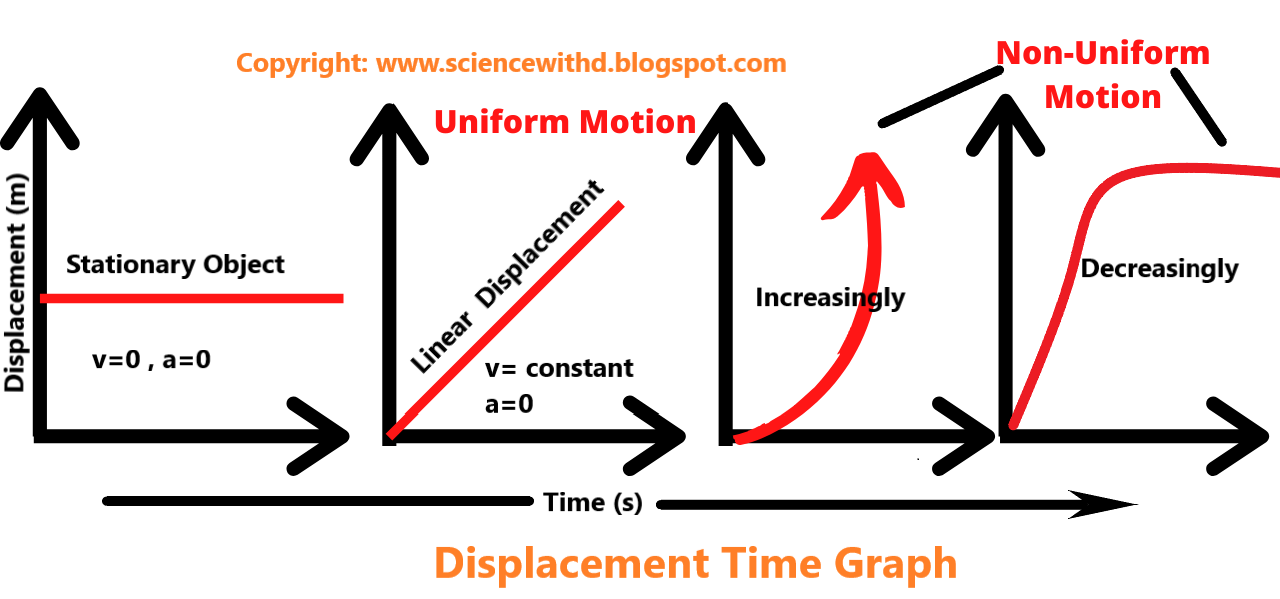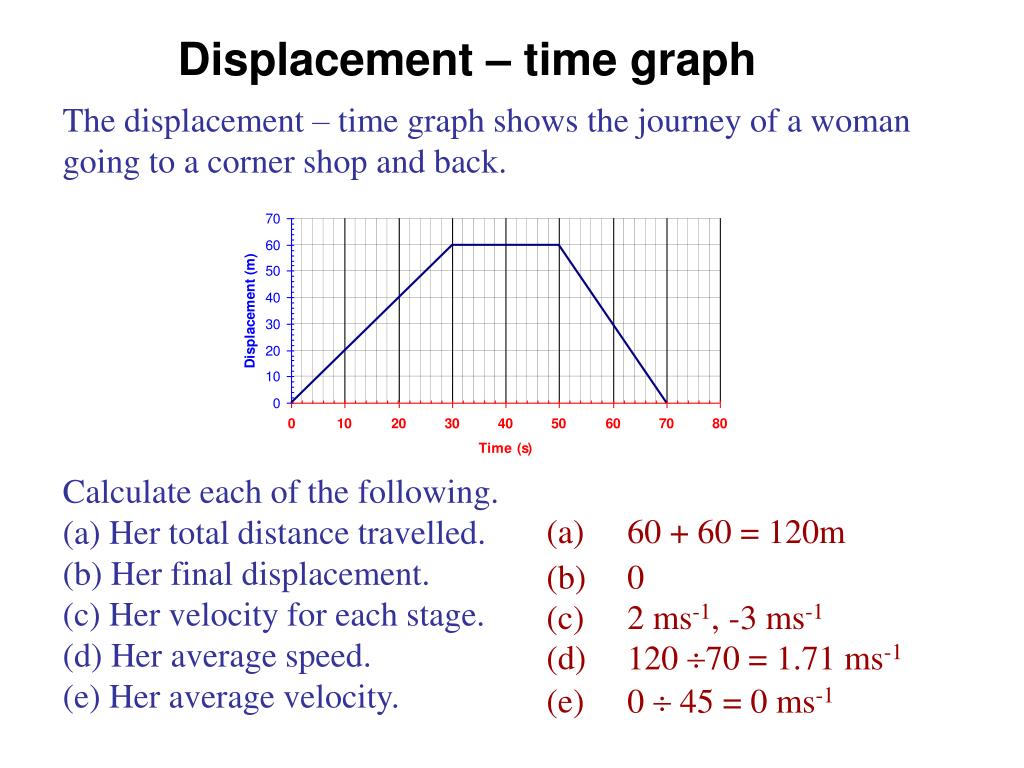
PPT Velocity time graph PowerPoint Presentation, free download ID2949512
The first answer was correct, displacement does need a quantity and direction. Displacement can be calculated by measuring the final distance away from a point, and then subtracting the initial distance. Displacement is key when determining velocity (which is also a vector). Velocity = displacement/time whereas speed is distance/time.
Velocity Time Graph And Position Time Graphs
The displacement close displacement A distance measured in a specified direction. of an object can be calculated from the area under a velocity-time graph. The area under the graph can be.

Displacementtime and Velocitytime Graph of Ball Thrown Up / Ball Dropped Graphing, Physics
No. Distance-vs.-time graphs only account for the total movement over time. Position-vs.-time graphs note one's position relative to a reference point (which is where x=0 on the graph in the video). Here's an example of the difference: A tennis player hits a ball to a wall 5 meters away, and the ball bounces back the same distance.

How to calculate the displacement from a velocity vs time graph YouTube
Its velocity v as a function of time t is given in the graph below where rightwards is the positive velocity direction. A set of black coordinate axes are given with the vertical axis labeled "v (m/s)" and the horizontal axes labeled "t (s)".

PPT Chapter 2 PowerPoint Presentation, free download ID9510735
The area under a velocity-time graph is equal to the displacement of a moving object; Displacement = Area under a velocity-time graph. Acceleration is any change in the velocity of an object in a given time; As velocity is a vector quantity, this means that if the speed of an object changes, or its direction changes, then it is accelerating. An.
Velocity Time Graph And Position Time Graphs
This physics video tutorial explains how to calculate displacement from a velocity-time graph.Physics - Basic Introduction: https.

Spectacular Different Types Of Velocity Time Graph Excel Xy Diagram
The displacement of an object is defined as how far the object is from its initial point. In the displacement time graph, displacement is the dependent variable and is represented on the y-axis, while time is the independent variable and is represented on the x-axis. Displacement time graphs are also known as position-time graphs.

Displacementtime and Velocitytime Graph of Ball Thrown Up / Ball Dropped Physics notes
So the value of the slope at a particular time represents the velocity of the object at that instant. To see why, consider the slope of the position vs. time graph shown below: [Wait, why is the vertical axis called x?] x ( m) t ( s) r i s e r u n t 1 t 2 x 1 x 2. The slope of this position graph is slope = rise run = x 2 − x 1 t 2 − t 1 .

CBSE CLASS 9TH SCIENCE(PHYSICS) CHAPTER MOTION (Graphical ) Part2
Additional resources for Calculating Displacement from Velocity-Time Graphs. PRACTICE PROBLEMS AND ACTIVITIES (2) FIGURE EX2.8 is a somewhat idealized graph of the velocity of blood in the ascending aorta during one beat of. (II) Given v (t) = 25 + 18t, where v is in m/s and t is in s, use calculus to determine the total displacement.

PPT Displacement time graph PowerPoint Presentation, free download ID5230247
The Velocity-Time Graphs: Displacement Calculations Video Tutorial describes the significance of area on a velocity-time graph. Details about how to calculate the area between the line and the time axis are explained and modeled through numerous examples. Common pitfalls are discussed and strategies for analyzing complex situations are described.

kinematics Distance and Displacement from a velocity vs. time graph Physics Stack Exchange
A displacement vs time graph, or simply a displacement graph, is a handy tool to determine the velocity of objects. Before getting into what a displacement vs time graph contains, it might be.

Displacement from the Velocity vs. Time Graph YouTube
The displacement-time graph of a moving object tells the distance covered by a moving object with a change in time. The displacement is a vector quantity. The slope or the gradient of this graph indicates the object's velocity. The displacement-time graph is also known as the position-time graph, which represents the motion of an object.

Velocity Time Graph Displacement ChazknoeAlvarado
Displacement-time graphs. Save Copy. Log InorSign Up. Explore: Try using the sliders for initial postion, s_initial, initial velocity, u, and acceleration, a. How does each one change the graph 1. s initial = 0. 2. u = 1 8. 3. a = 0. 4. Turn on the example graphs below. Each of dashed red and blue curves represent the 1D displacement of an.

M08 Finding velocity from a displacement time graph YouTube
The slope of a velocity graph represents the acceleration of the object. So, the value of the slope at a particular time represents the acceleration of the object at that instant. The slope of a velocity graph will be given by the following formula: slope = rise run = v 2 − v 1 t 2 − t 1 = Δ v Δ t. v ( m / s) t ( s) r i s e r u n t 1 t 2.

Velocity time graphs (Video) PhysicsTube
It works because displacement is the product of velocity and time. And in our graph when you multiply velocity and time you're basically multiplying two lengths in our graph and that gives us the area. And so that's the secret to calculating displacements and from a velocity time graph.

Distance, velocity, time graphs SSDD Problems
The gradient of a displacement-time graph is velocity 2.Velocity-timegraphs. Any point on such a graph will have coordinates (t,v), in which v is the velocity after a time t. WorkedExample2. Figure 2 shows the velocity-time graph for the motion of the tennis ball described in example 1. It was thrown into the air with a velocity of 7 m s−1.